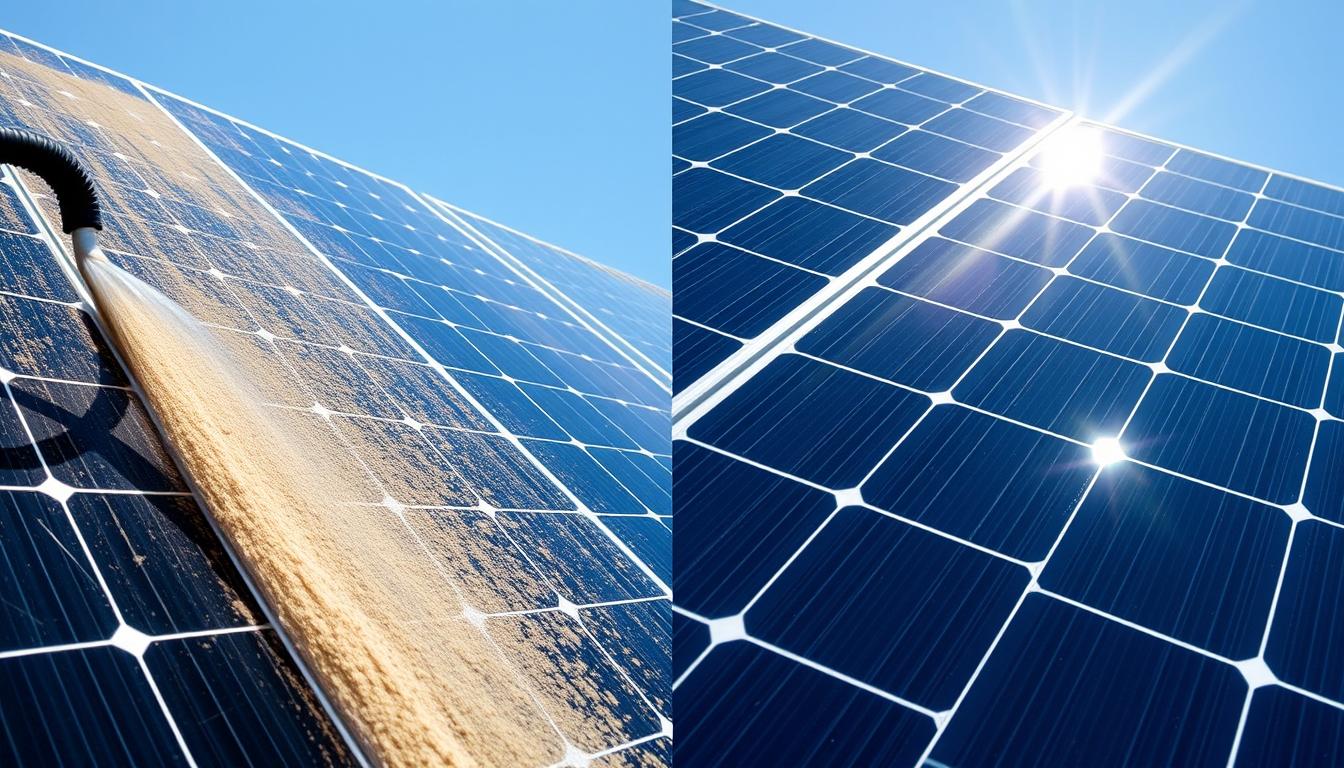Why Solar Panel Cleaning Matters
Solar panels work by converting sunlight into electricity. The experts in solar panel cleaning in Santa Clara (valleywashpros.com) say that when dust, pollen, bird droppings, or other debris accumulate on your panels, they block sunlight from reaching the photovoltaic cells, which directly impacts your system’s ability to generate power.
In drier, dustier parts of the United States, annual energy losses from dirty panels can reach up to 7%. In more extreme environments like the Middle East, losses can soar to a staggering 50%! Even in areas with regular rainfall, certain types of dirt can combine with morning dew to form a cement-like substance called cementation that’s difficult to remove and significantly reduces efficiency.
How Often Should You Clean Solar Panels?
The frequency of solar panel cleaning depends largely on your location and environmental factors. For most homeowners, cleaning once or twice a year is sufficient. However, certain conditions may require more frequent maintenance:
| Environment | Recommended Cleaning Frequency | Why It Matters |
| High pollution areas (near highways, airports, factories) | Every 3-4 months | Soot and oil buildup block sunlight and can be difficult to remove if left too long |
| Wooded areas | Quarterly (seasonal) | Pollen, leaves, and bird droppings accumulate more frequently |
| Dusty/arid regions (Southwest) | Every 2-3 months | Sand and dust build up quickly and can cause cementation |
| Rainy regions | 1-2 times per year | Rain naturally cleans panels, but residue may still accumulate |
| Flat-mounted panels | More frequently than angled panels | Water pools rather than runs off, leaving mineral deposits |
Monitor your system’s energy production through your home monitoring system. If you notice unexpected drops in efficiency beyond the normal 0.5% annual degradation, it might be time for a cleaning.
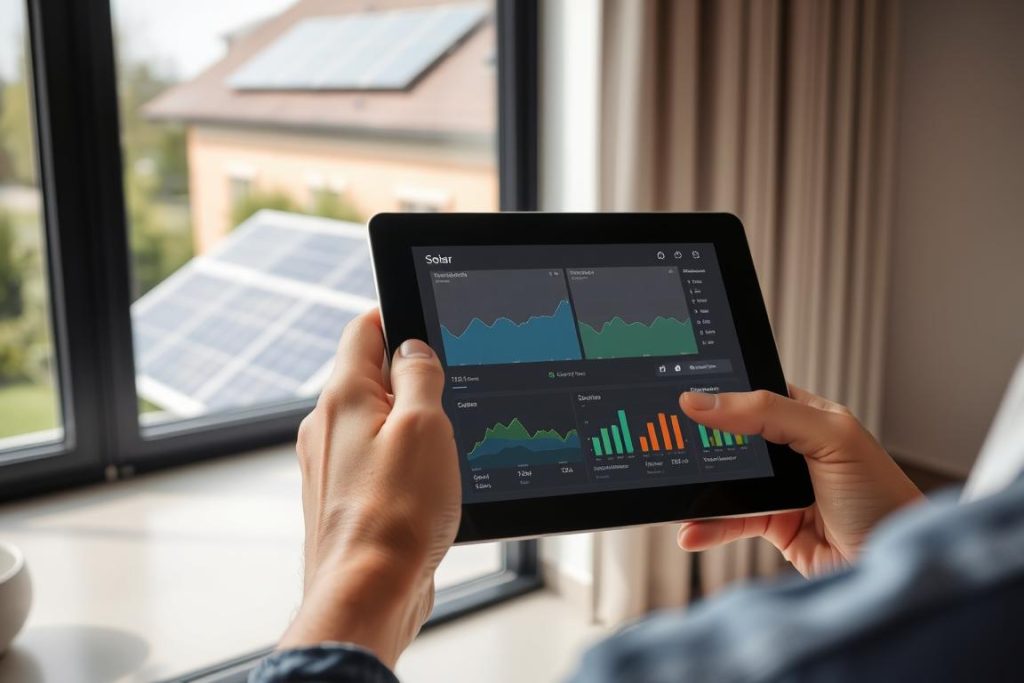
DIY Solar Panel Cleaning: Step-by-Step Guide
Cleaning your solar panels yourself is relatively simple if you follow these guidelines. Always check your solar panel warranty first, as some manufacturers have specific cleaning requirements.
What You’ll Need:
- Soft brush or sponge (non-abrasive)
- Squeegee with rubber blade
- Garden hose with spray nozzle
- Mild soap (dish soap) or vinegar solution
- Soft cloth for drying
- Distilled water (optional, for final rinse)
- Extension pole (if panels are hard to reach)
Step-by-Step Cleaning Process:
- Choose the right time: Clean early morning or on an overcast day when panels are cool to prevent thermal shock and soap drying too quickly.
- Turn off your solar system following the manufacturer’s instructions for safety.
- Rinse panels with water from a garden hose to remove loose dirt and debris.
- Fill a bucket with warm water and add a small amount of mild soap or a vinegar-water solution (1:8 ratio).
- Gently clean the surface with a soft sponge or brush. Work in small sections to prevent soap from drying.
- Rinse thoroughly with clean water to remove all soap residue.
- Use a squeegee to remove excess water and prevent water spots.
- Allow panels to air dry before turning the system back on.
Never use abrasive materials, high-pressure washers, or harsh cleaning chemicals on your solar panels. These can damage the protective glass and void your solar panel warranty.
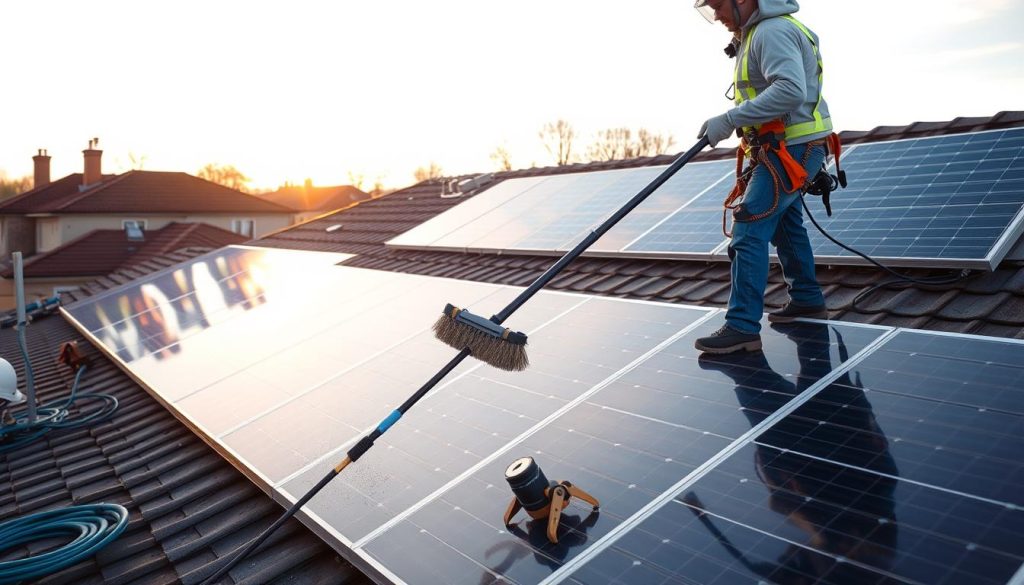
Professional Solar Panel Cleaning Services
While DIY cleaning is possible for many homeowners, professional cleaning services offer several advantages, especially for larger systems or difficult-to-access installations.
Benefits of Professional Cleaning
- Safety (no roof climbing required)
- Specialized equipment for better results
- Inspection for potential issues or damage
- Proper techniques that won’t void warranties
- Time-saving for busy homeowners
- Consistent maintenance scheduling
Considerations
- Cost ($100-$350 per cleaning)
- Finding reputable service providers
- Scheduling availability
- Access to your property
- Weather dependencies
What to Expect from Professional Services
Professional solar panel cleaners typically charge between $100-$350 per service, depending on system size, location, and accessibility. Most use specialized equipment like deionized water systems that leave no residue and soft brushes designed specifically for solar panels.
Many companies also offer maintenance plans with regular scheduled cleanings at discounted rates. If you leased your solar system, check your agreement—cleaning may already be included in your maintenance package.
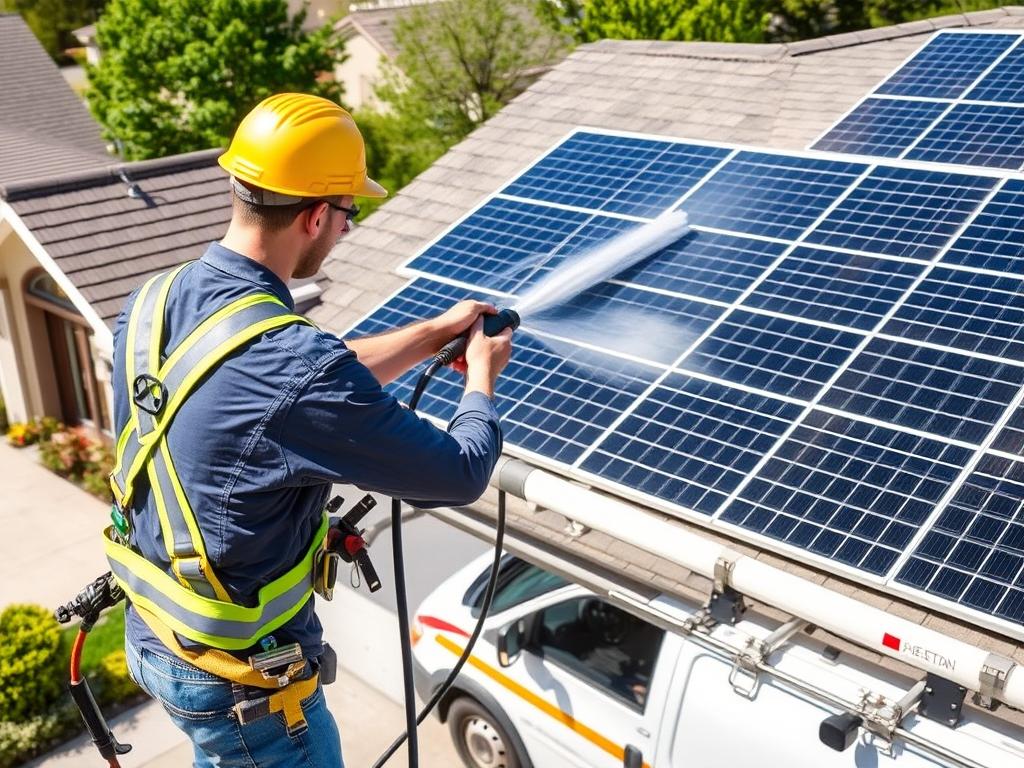
Safety Considerations for Solar Panel Cleaning
Safety should always be your top priority when cleaning solar panels. Falls from roofs are among the most common home maintenance accidents and can result in serious injuries.
Important Safety Tips:
- Turn off your solar system before cleaning according to manufacturer instructions
- Avoid climbing on the roof if possible; use extension tools from the ground
- If roof access is necessary, use proper safety equipment (harness, non-slip shoes)
- Never clean panels during storms or high winds
- Avoid walking or kneeling directly on panels
- Clean during cool parts of the day to prevent thermal shock to hot panels
- Have someone spot you if working on a roof
- Keep electrical components dry
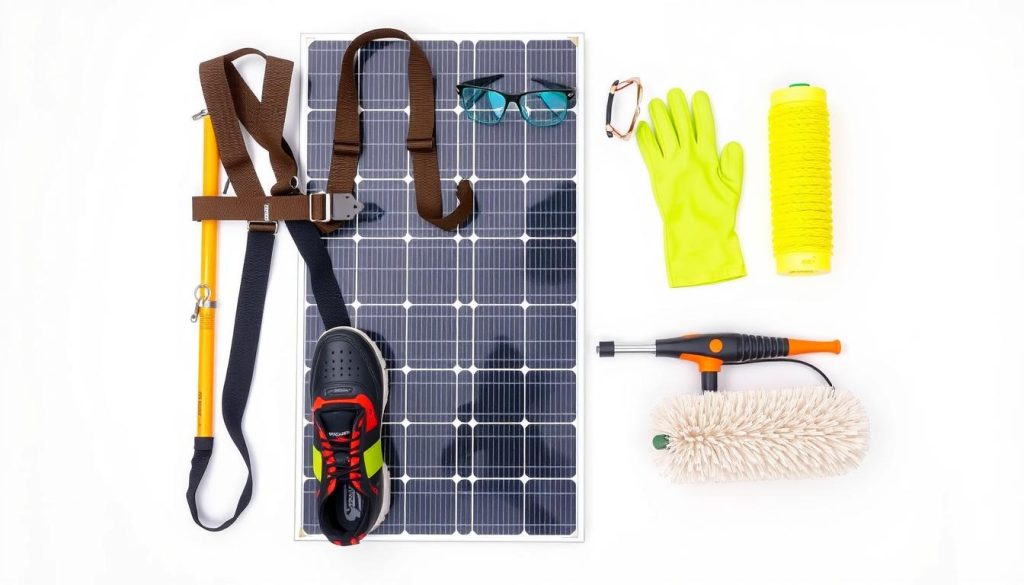
How Cleaning Affects Your Solar Panel Warranty
Proper maintenance is essential not just for performance but also for protecting your solar panel warranty. Many manufacturers include specific cleaning guidelines in their warranty terms.
Common Warranty Considerations:
- Some warranties require documented regular cleaning (typically twice yearly)
- Using improper cleaning methods or tools may void your warranty
- Walking on panels almost always voids warranty protection
- Pressure washers are explicitly prohibited by most manufacturers
- Chemical cleaners beyond those recommended can damage panels and void coverage
Always review your specific solar panel warranty documentation before cleaning. If you’re unsure about any requirements, contact your installer or manufacturer directly. Keeping records of your cleaning schedule (with photos) can be helpful if warranty claims become necessary.
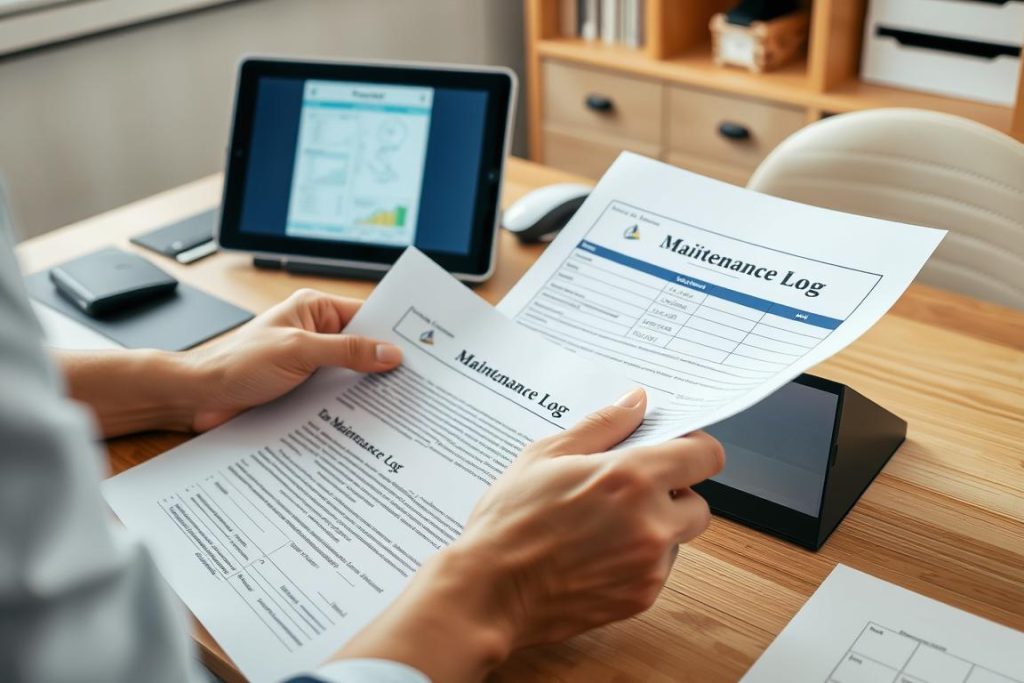
Automated Solar Panel Cleaning Solutions
For those seeking more convenient options, several automated cleaning technologies have emerged in recent years:
Robotic Cleaners
Self-propelled robots that move across panels using microfiber cloths to remove dirt without water. Ideal for large installations in dry regions.
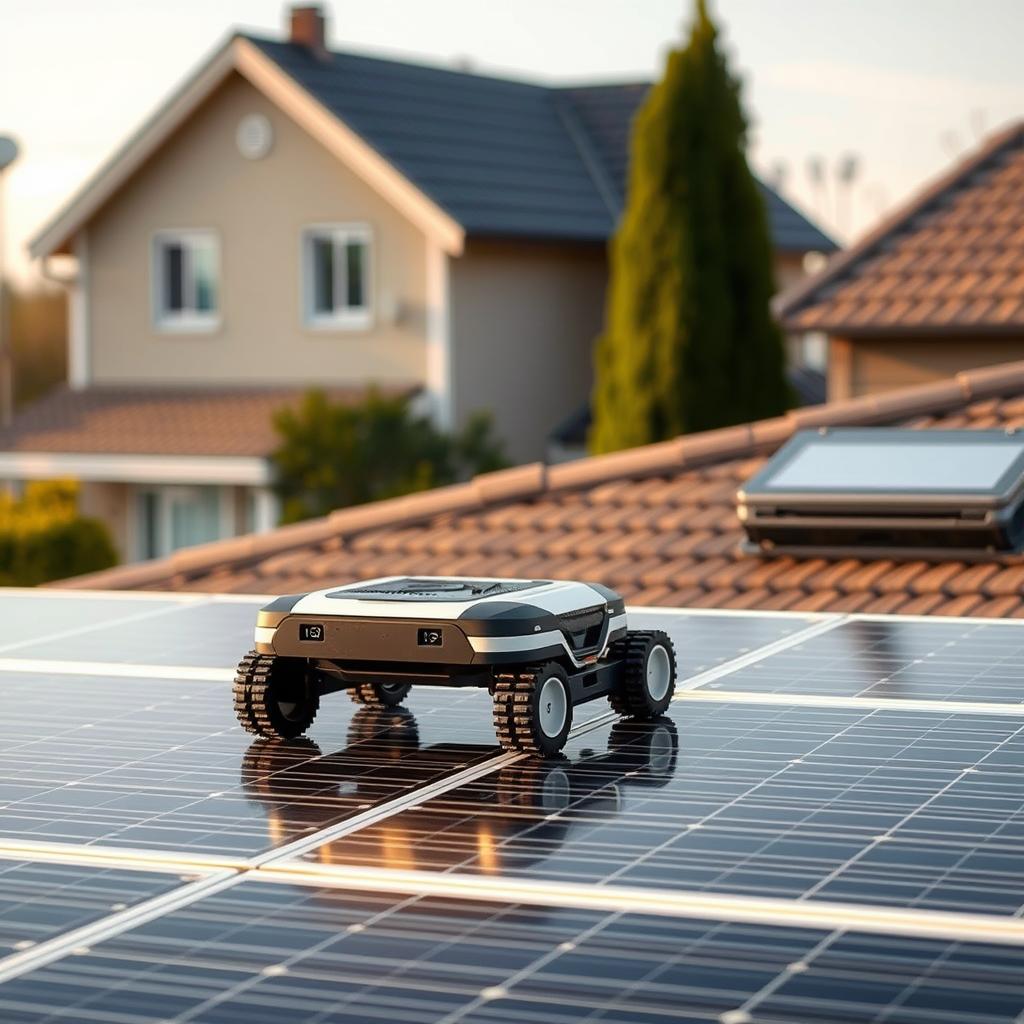
Sprinkler Systems
Programmable sprinklers installed along panel edges that periodically rinse panels. Best for areas with water access and minimal water restrictions.
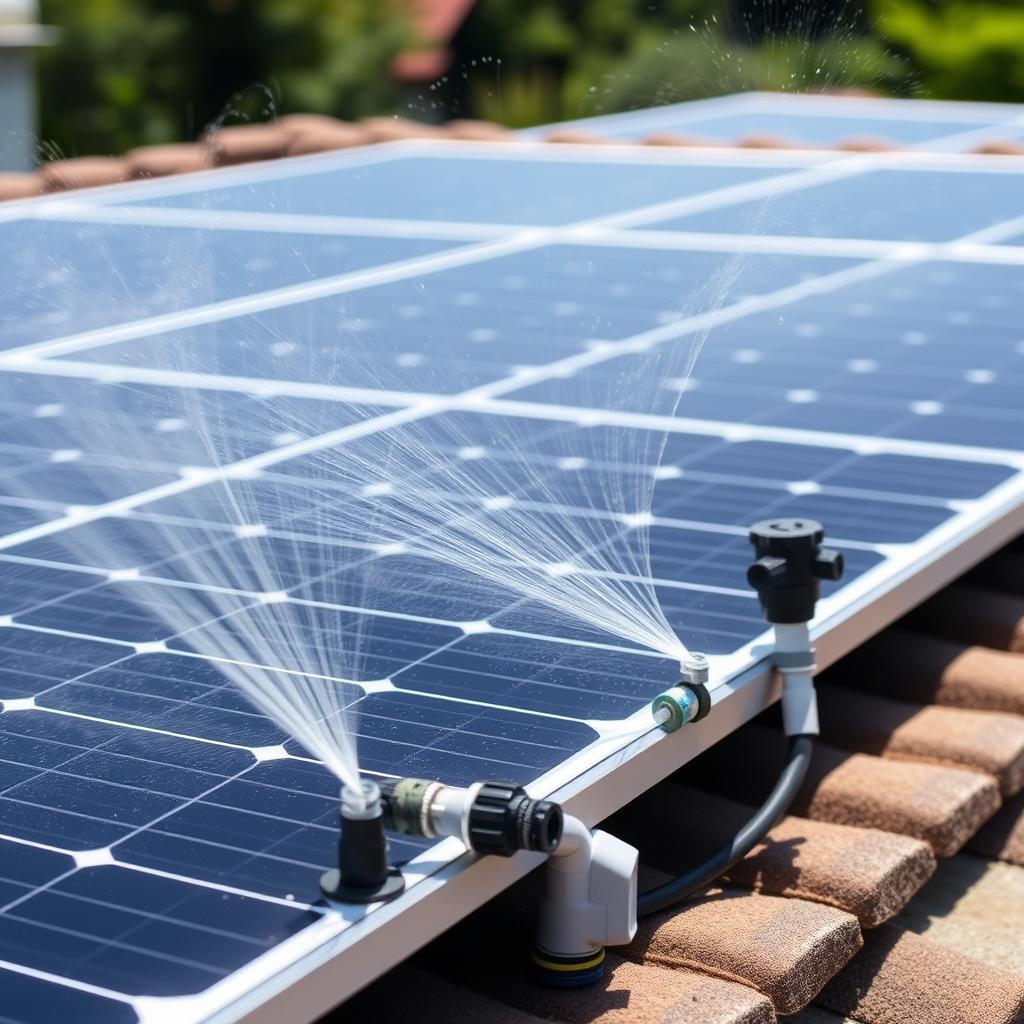
Hydrophobic Coatings
Special nano-coatings applied to panels that repel dust and make rain more effective at cleaning. One-time application lasts 3-5 years.
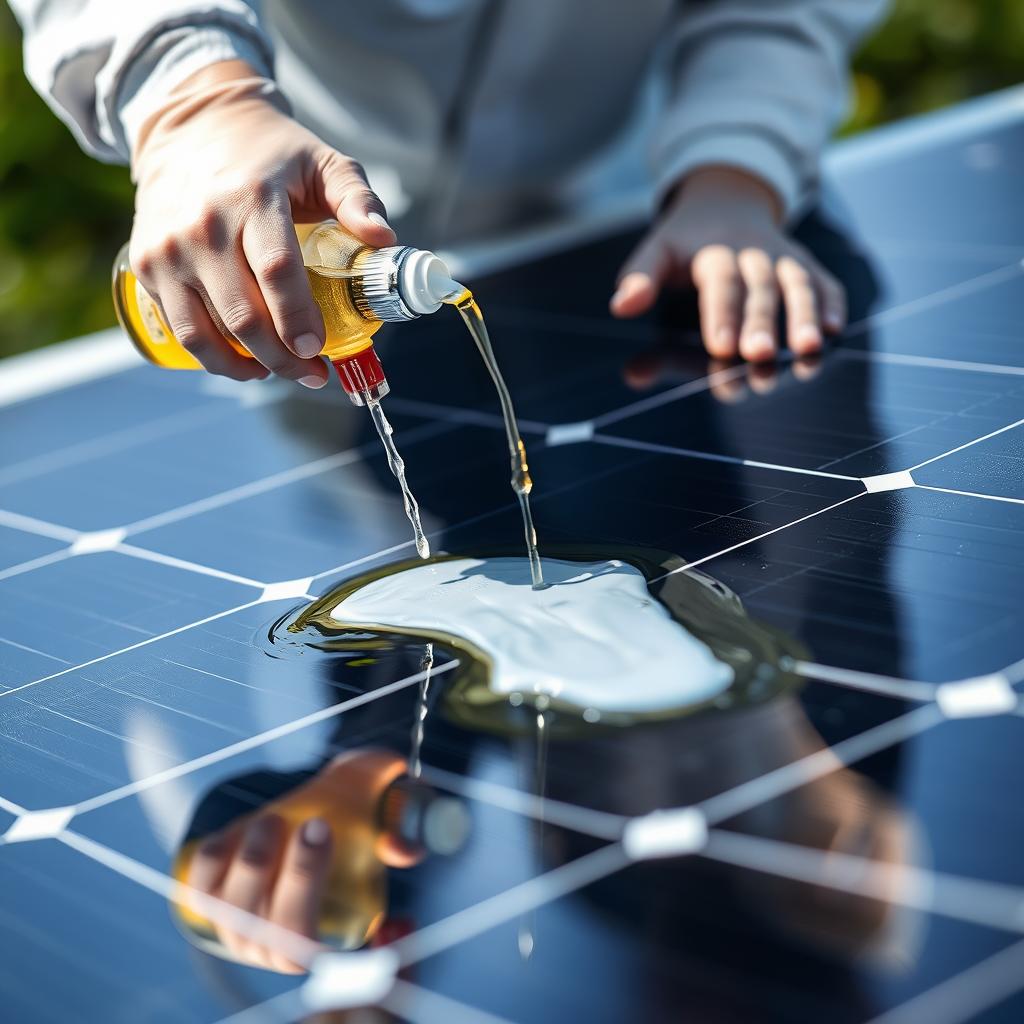
While these solutions require initial investment, they can reduce long-term maintenance costs and ensure consistent panel performance. Most are best installed by professionals to ensure proper setup and integration with your existing system.
Keeping Your Solar Investment Shining Bright
Regular solar panel cleaning is an essential part of maintaining your renewable energy investment. Whether you choose the DIY approach, professional services, or automated solutions, keeping your panels clean will maximize your energy production and extend the life of your system.
Remember that proper cleaning techniques not only improve efficiency but also protect your solar panel warranty. By following the guidelines in this article, you’ll ensure your solar panels continue generating clean, cost-effective energy for decades to come.

